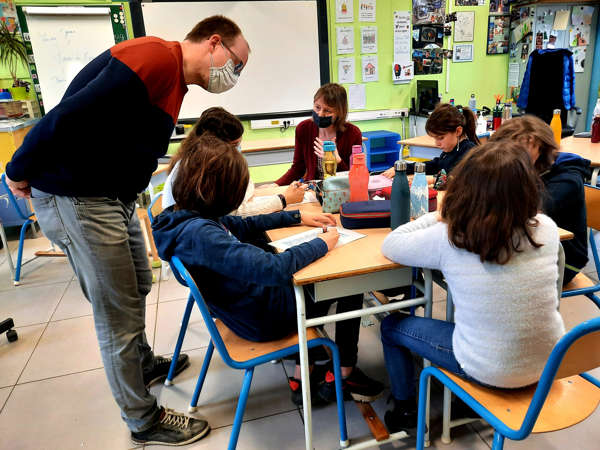For Flemish Education Minister Ben Weyts, the advice to curb the rising infections issued by the GEMS expert group is not acceptable as it amounts to a "de facto lockdown" for schools.
The GEMS expert is in favour of, among other things, a "cooling-off period" of ten days in schools: kindergartens and primary schools would have to close, and secondary schools would have to organise distance learning for most days. They also suggested face masks from the age of 6, meaning that all pupils in primary school would have to wear one.
"I understand that the experts advocate drastic measures, but you have to look at the full scales," Weyts said in the Flemish Parliament on Thursday afternoon.
"They mainly look at the virological benefits, but of course there are also the social costs," he said, reiterating that vulnerable children, in particular, pay the price for school closures, as not everyone can easily switch to distance learning.
Related News
- Peak in infections sees 115 Dutch-speaking schools close
- 'Scrap all indoor events': Jambon wants new Consultative Committee soon
- Closed schools, social bubbles: everything is on the table at Consultative Committee, says De Croo
For Weyts, the closure of schools is also at odds with the proposal to scrap all indoor events made by Flemish Minister-President Jan Jambon on Wednesday.
"That proposal was aimed at keeping education open, among other things. It was a signal that people might no longer go to [popular Flemish singer] Niels Destadsbader and the cinema, so the schools could stay open," he said. "The schools are the last places where you turn off the lights."
Weyts' statements follow comments made by Prime Minister Alexander De Croo in the Chamber earlier on Thursday, where he said that "everyone will have to play their part. At a time like this, there can be no taboos."
He also referred to the relatively relaxed measures that so far have been imposed on the education sector, and stressed that keeping one sector open at the cost of another cannot be done.
According to the latest figures, 115 of the 4,020 Dutch-speaking schools have closed due to the high infection rate, including 66 primary schools, 46 secondary schools and 3 boarding schools. Altogether, some 4,000 pupils in Flanders and Brussels are affected.
In the Flemish parliament, Weyts added that when schools are closed, primary school children are often brought to their grandparents or to care initiatives, where a lot of children are mixed, which is exactly what he wants to avoid.
The Consultative Committee will meet tomorrow from 9:00 AM to discuss stricter measures. Afterwards, a press conference will be held to announce the latest changes, a spokesperson for Prime Minister Alexander De Croo confirmed to The Brussels Times.

